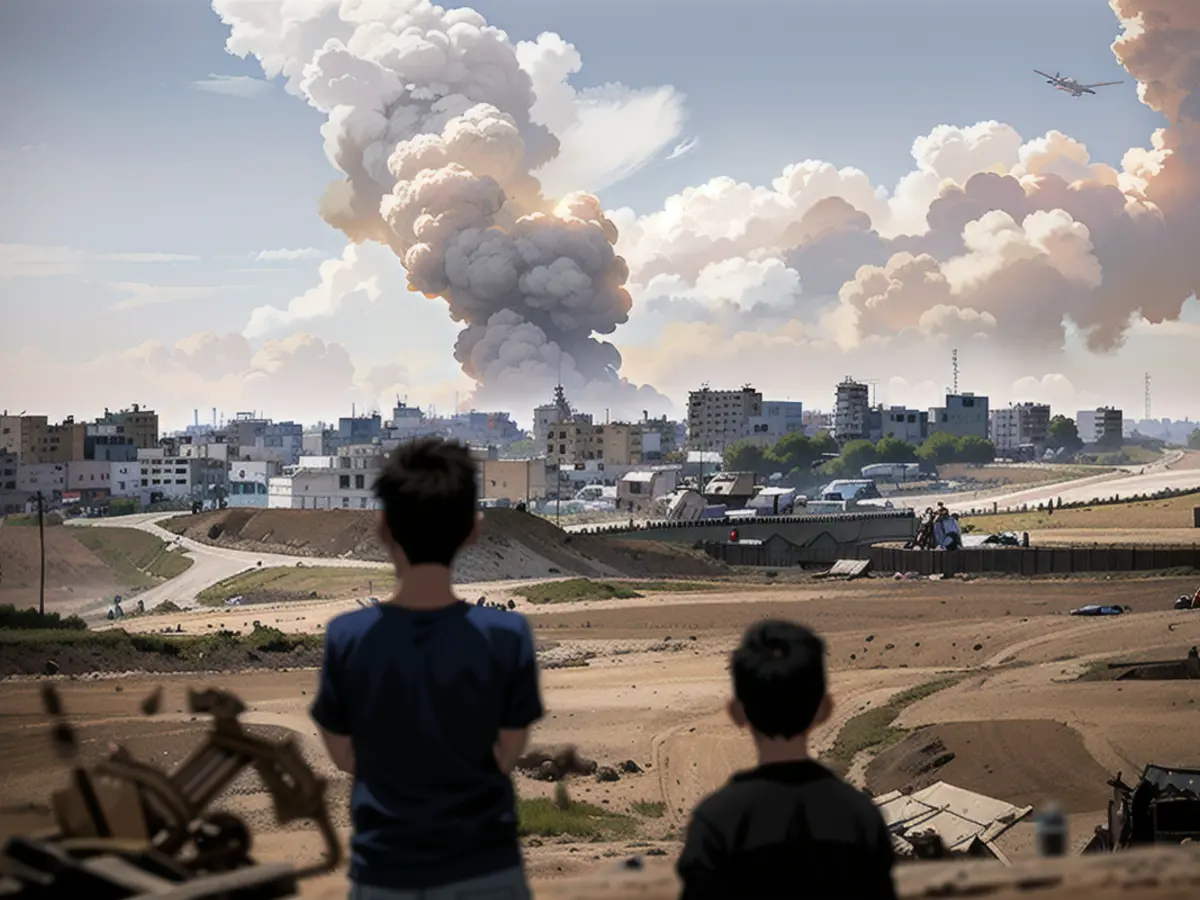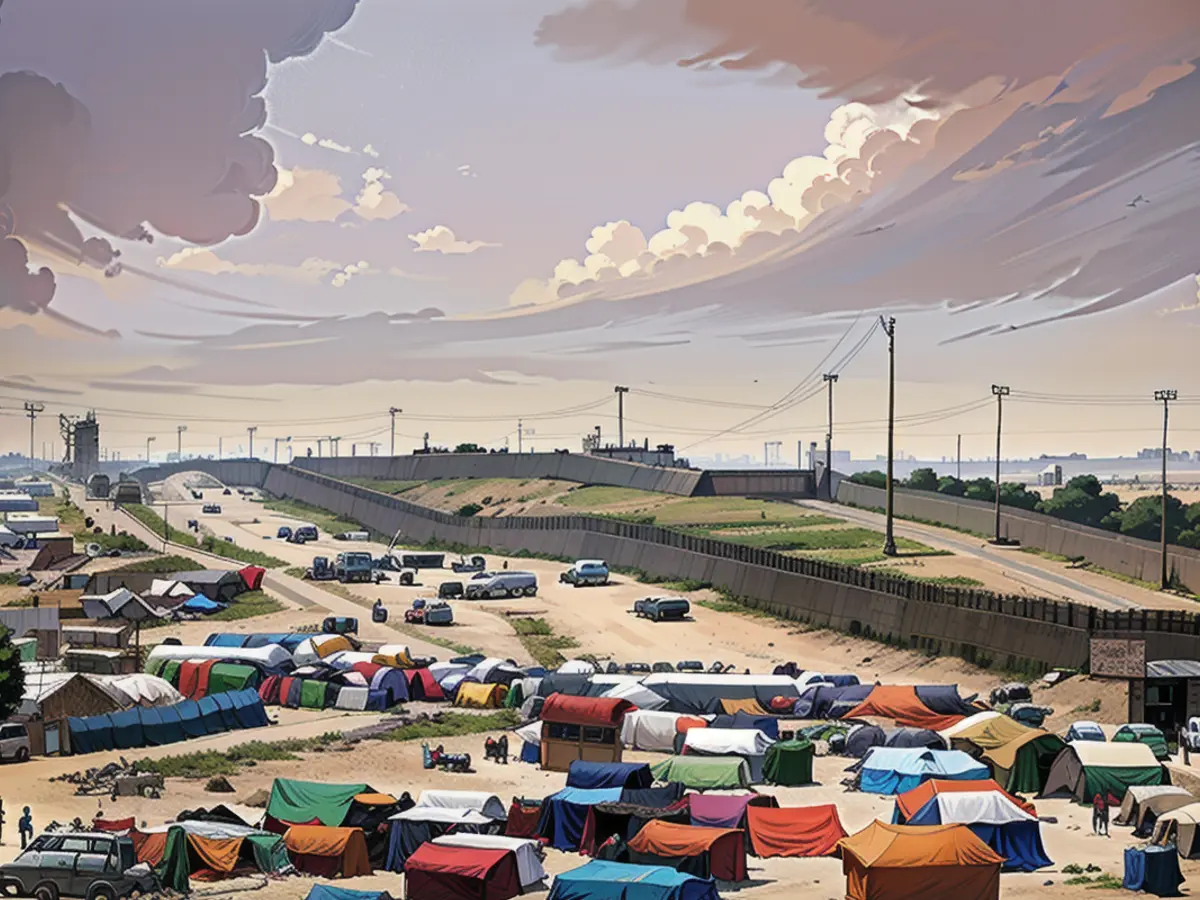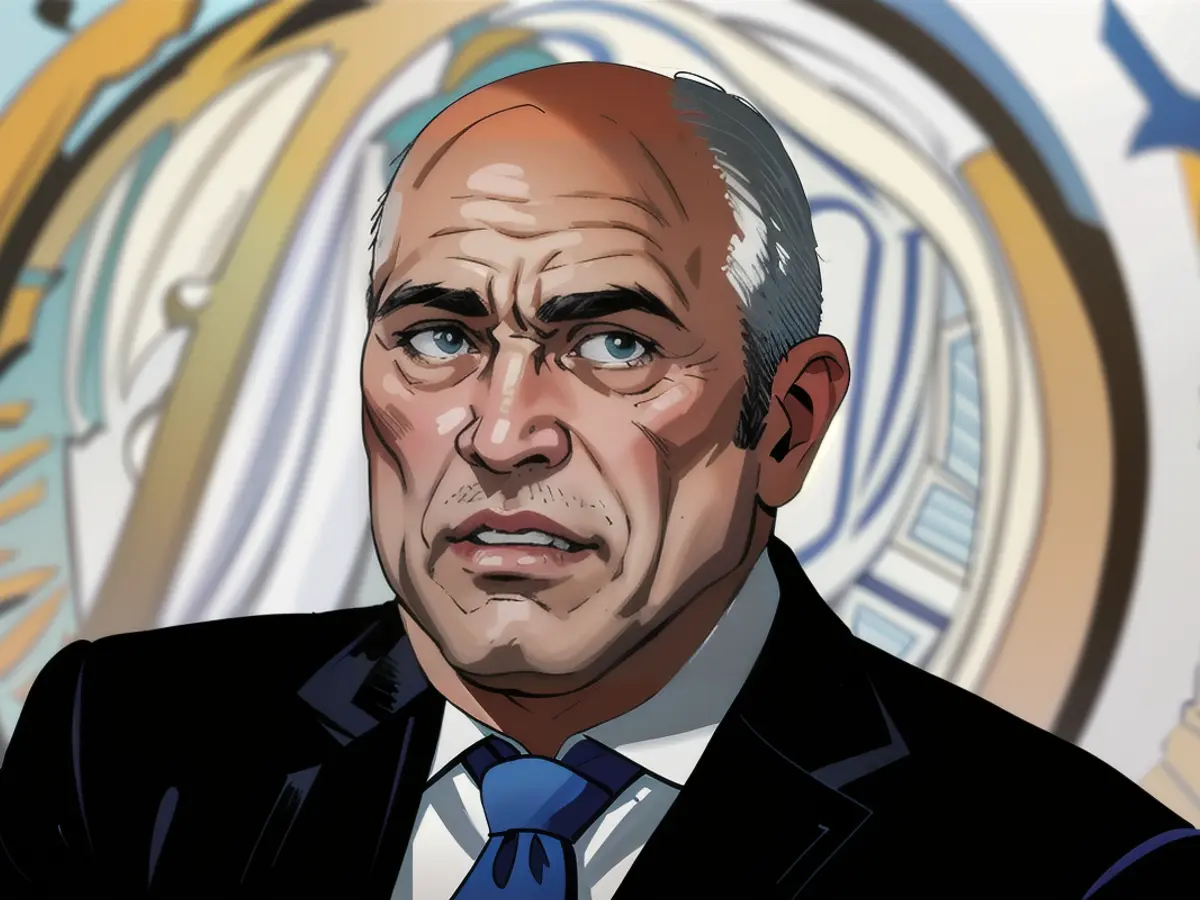Egypt cautions Israel regarding potentially severe consequences due to its Rafah operation in Gaza.
"Every possibility, including strained relations, is up for discussion. However, we're not there yet. We're holding talks with the Israelis, attempting to reach an understanding," said an official.
They revealed that cooperation between the two countries regarding the operation in Rafah, which Egypt has vocally opposed, "went awry." As a result, Egypt cautioned Israel about severe repercussions.
CNN reached out to the Israeli foreign ministry for comment.
The Wall Street Journal had earlier reported that Egypt was considering diminishing ties with Israel.
The two nations have been at odds throughout the week following Israel's limited military operation in Rafah last week and the seizure of the Palestinian side of the Egyptian border. Egypt subsequently decided against collaborating with Israel in coordinating aid delivery into Gaza. The official earlier told CNN that the delivery of aid to Palestinians could be suspended since Egypt can't ensure the safety of their trucks, as they might be attacked by Palestinian militants targeting Israeli troops.
The top diplomats from both countries exchanged accusations pertaining to the closure of the Rafah crossing as humanitarian aid deliveries through this vital land route ground to a halt.
Before Israel's operation, Rafah was the point of entry for almost a quarter of aid entering the Gaza Strip. On Tuesday, the US State Department noted that only 50 humanitarian aid trucks made it through to Gaza on Sunday, which was a significant reduction from hundreds of trucks per day in prior weeks. They emphasized that this number was "not nearly sufficient."
Israel assigned the blame for the crossing's closure on Egypt. Israeli Foreign Minister Israel Katz commented on the situation on Tuesday, saying he had conversed with UK Foreign Secretary David Cameron and German Foreign Minister Annalena Baerbock "about the necessity of convincing Egypt to reopen the Rafah crossing to allow the ongoing delivery of international humanitarian aid to Gaza."
Egypt's Foreign Minister Sameh Shoukri retorted, rejecting Katz' statement, calling it an attempt to distort the facts and disclaim responsibility. He considered Israel's statement as "desperate attempts by Israel to blame Egypt for the unprecedented humanitarian crisis in the Gaza Strip."
Shoukry described the crisis as "a direct consequence of Israel's ongoing indiscriminate attacks on the Palestinians for more than seven months."

Israel maintains that it won't allow Hamas to govern the border crossing. The Egyptian official spoke to CNN, stating that Egypt didn't want Hamas in control but that Israeli control was equally unacceptable.
"It needs to be managed by the Palestinians," the official said, highlighting the possibility of placing the crossing under the authority of the Palestinian Civil Defense. "These are neither Hamas nor Fatah (a rival party to Hamas)."
Israeli troops near the Egyptian border
Tensions have been heightened further due to Israeli military movements positioning troops and tanks right at Egypt's doorstep, triggering criticism in Egyptian media for alleged breaches of the 1979 peace treaty between the two nations.
Israeli troops have entered into a 14-kilometer (8.7 mile) long and 100-meter-wide stretch of land at the border between Gaza and Egypt, which was demilitarized in the treaty four decades ago. This region, referred to as the Philadelphi Corridor, is vital to the 1979 treaty since it restricted the number of troops each side can station close to the other's territory.
Changes to the security situation in this area must be agreed upon by both parties. Over the years, Egypt has been permitted to increase its security presence in the Sinai Peninsula, which shares a border with Israel.
According to the 1979 treaty, Israel is authorized to station four infantry battalions in Zone D, where the Philadelphi Corridor resides. These battalions may comprise approximately 180 armored personnel vehicles and a total force of four thousand soldiers. The presence of tanks, artillery, and anti-aircraft missiles, apart from individual surface-to-air missiles, is prohibited, the treaty dictates.
It remains unclear how many troops Israel currently has stationed in Rafah. When CNN inquired about the scale of the military operation in the city and whether it was coordinated with the Egyptians, the IDF refrained from comment.
The aforementioned contributors from CNN — Eugenia Yosef, Hamdi Alkhshali, Michael Conte, Michael Schwartz, Mostafa Salem, Mohammed Tawfeeq, Tim Lister, Abeer Salman, and Richard Roth — furnished reporting."

Read also:
- This will change in December
- Dikes withstand water masses so far - Scholz holds out the prospect of help
- Fireworks and parties ring in 2024 - turn of the year overshadowed by conflicts
- Attacks on ships in the Red Sea: shipping companies avoid important trade route
The international community is closely watching the situation in the Middle East, given the tensions between Egypt and Israel. Various countries have expressed concern over the potential escalation of conflicts and its impact on the world.
Following Egypt's criticism of Israel's Rafah operation in Gaza, the Middle East Quartet, which includes the European Union, the United Nations, Russia, and the United States, released a statement urging both parties to exercise restraint and find a peaceful resolution to the crisis.
Source: edition.cnn.com







